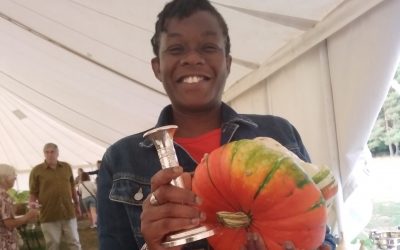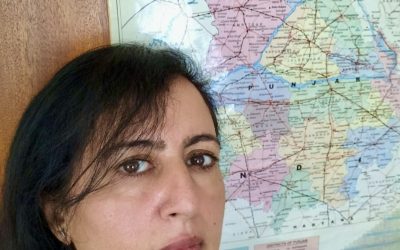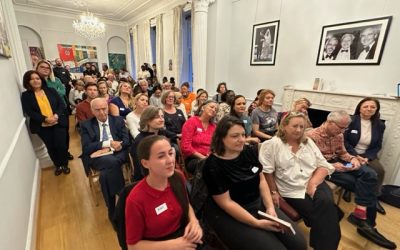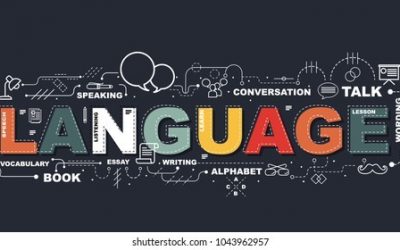Three TGIUK volunteers give personal accounts on how and environment of multiculturalism and migration is reshaping the British narrative and encouraging more people to connect with migrants in the UK.
At TGIUK, we’re big proponents of multiculturalism. It is embedded in the purpose of our site; why we have a platform that shares the stories of migrants and offers advice for people who have migrated to the UK.
So, we thought it would do well to ask three of our members, who are British-born, a few questions on their perspective of multiculturalism and why they chose to support TGIUK.
The answers below come from:
-Teresa: CEO and Director
-Sam: Multimedia Designer
-Hattie: Content Creator
Their answers are truly thought-provoking and we hope you will enjoy reading them.
1. What encouraged you to join TGIUK?
Teresa:
It started as a result of my friendship with a family who migrated here from Africa. I realised that there is so much you don’t know when you come to a new country. It’s all so different: how you interact with public services, how and where you shop, how the health service works, cultural and language differences. I thought that it would be really powerful to share the stories of people who had migrated, how had they overcome these challenges, how did they make it work? I then found others (in particular, the co-founders: Johann, Kosta and Fatkma) who shared the vision and together we created it.
Sam:
My mother’s parents were both post WW2 immigrants to the UK and my mother herself an immigrant after being born in Italy. So, there was a vested interest in how generations migrate and evolve in new environments.
I wanted to use my time to do some good and give back to the community. I had the design skills and the will and found TGIUK through an online advert. This opportunity allowed me to not only keep my design skills fresh but help TGIUK reach new exciting goals and spread the word to more people!
Hattie:
I came across TGIUK on TeamLondon, a website for voluntary opportunities. I agreed with the core principle that people learn best through sharing stories; they are a really useful way to introduce difficult topics into conversations, and encourage empathy.
2. Can you share one key insight into what you have learned since joining TGIUK on the challenges and joys of migration?
Teresa:
I think I have learned that it’s really hard for migrants to create a new life in a new country. I remember going to an event led by TERN, the Enterprise Network for Refugees http://www.wearetern.org/and one of the founders asked:
· ‘Do you have a business idea?’ My hand went up
· ‘Could you do it without a network?’ My hand went down
· ‘Could you do it without any funding or sponsorship?’ My hand stayed down.
And yet, people come here with the courage to start new businesses, without any of this.
Sam:
Since working with the team at TGIUK I can say it’s been a humbling eye opener to how lucky I have been in life. To see where some people have come from and then had to adapt to a completely alien and sometimes hostile environment was inspiring, saddening and at times humorous. The man who went to a farmer’s market expecting to see live-stock being traded instead of posh cheese and free range veggies showed the lighter side to adapting to a new country. https://www.togetherintheuk.co.uk/living-in-the-uk-countrysidefarmers-markets/
Also, the success stories. These are relatable to anyone embarking on a new challenge, or journey but also inspire you through other people’s grit and heart.
Hattie:
I didn’t know about the costs involved until I spoke with Yuyu Wang, a theatre maker, https://www.togetherintheuk.co.uk/yuyus-insights-on-why-stories-matter-and-how-to-reach-an-audience/and researched Inua Ellams for a blog on National Writing Day – I believe it’s £900 minimum to renew your immigrant status, which is a crazily large sum of money for, effectively, some paperwork. It must be extremely stressful. I loved talking with Nour Morjan about her experience coming from Syria to the UK – she was so inspiring and had great advice about attending refugee events and making friends with patient people who will help with learning English. https://www.togetherintheuk.co.uk/national-writing-day-writing-from-a-migrants-perspective-and-nour-morjans-insights-on-how-to-get-published/
3. What do you think are the positives of living in a multicultural area? Do you have any particular memories/stories?
Teresa:
As well as working on TogetherintheUK, I work as a Diversity Consultant so I know that difference and diversity bring new ideas, new ways of looking at the world. I would say one of the most powerful moments for me has been recently. I interviewed Nour Morjan for a podcast and she told me in a very matter of fact way about how she studied pharmacy in the UK, brought up her son and some days, she was spending all day on the phone to see if her parents had survived bombing in Syria. It certainly puts anything I have struggled with into perspective.
Sam:
I always wanted to come to London. The sounds, the smells, the buzz the food and the culture. Growing up in the countryside I was hungry to get to the heart of where things were decided and new movements and opportunity happened. How can you hate anyone that makes such amazing food right? Street food from around the world, Brixton village and grabbing a legit curry on Bricklane.
Hanging out with my friend Gordon and his Jamaican family and learning Patois slang and talking to his grandmother about the essentials of goat curry were both hilarious and heart-warming.
Finally, through working with people around the world you learn to love the little differences and appreciate that we’re all pretty much the same. Integration kills ignorance!
Hattie:
I love living in London because it is so multi-cultural. It means we have access to so much amazing food, music and art.
I recently ran a community event at a centre for Asian women in Camden. All the participants bought a dish they had made, and we had a pot luck dinner and exchanged stories about food and culture. One of the women there told us that she didn’t think she was a very brave person. The other participants jumped in immediately to tell us about how this particular woman had come to the UK from Bangladesh when she was 14, taught herself English, got married and had 3 children. When her husband left her, she immediately got a job and started volunteering at the centre, in order to support other women in similar positions, who now found themselves to be quite isolated. How she thought she wasn’t brave I’ll never know!
4. Why is it important to bridge relationships and understanding between British-born people and migrant people?
Teresa: We need to live well together, with understanding and compassion for the struggles of others. Recent events have shown us that we can all put people into a category marked ‘other’. Once we do this, our curiosity shuts down, our ability to connect becomes diminished and we are all poorer for it: economically, socially and intellectually. We have so much to learn from each other and to gain from our insights into each other.
Sam:
Again – integration kills ignorance. Spending time with people from other cultures, exchanging tales, food, and language helps people to connect.
There is less racism in London as kids grow up alongside people of other cultures and races. When your side by side it’s easy to see that hatred is the propaganda of fear and ignorance. I truly believe that everyone can be brought around to a better understanding through patience and exposure!
Hattie:
Brexit and the racism that appeared around Covid-19 are both worrying signs of a lack of empathy between British born people and migrant people. It will only be a good thing to put systems in place that will help people build bridges between cultural groups.
5. What do you think is the role of enterprises like TGIUK in supporting the relationships between British-born and migrant people?
Teresa:
Organisations like ours are connecting with people at the everyday level – we are saying, we want to know about you and what you can tell us. Share with us and we will share our collective learning. This is different from what is often a polarising debate and its important.
Sam:
To provide information, practical guidance and community. To spread the message to the general public and to help influence government policy and create various forms of positive change.
Hattie:
Sharing stories to encourage insight and knowledge sharing between British born and migrant people.
My observations:
So, multiculturalism proves an asset not only for society but for the individual, regardless of whether you were born British or not. Migrants and British-born people alike are entitled to take up their space and being able to overlap those spaces can produce an understanding like no other. I hope reading these responses can encourage everyone to seek out interaction with people of a different background. It can be intimidating, but ultimately, if both parties are open and welcoming, it can only enrich our lives and the society we live in. We do not need to be afraid of our differences but celebrate them, along with our similarities. Ultimately, multiculturalism should be treasured and that is the reason why it lies at the heart of TGIUK’s purpose and will always be.







